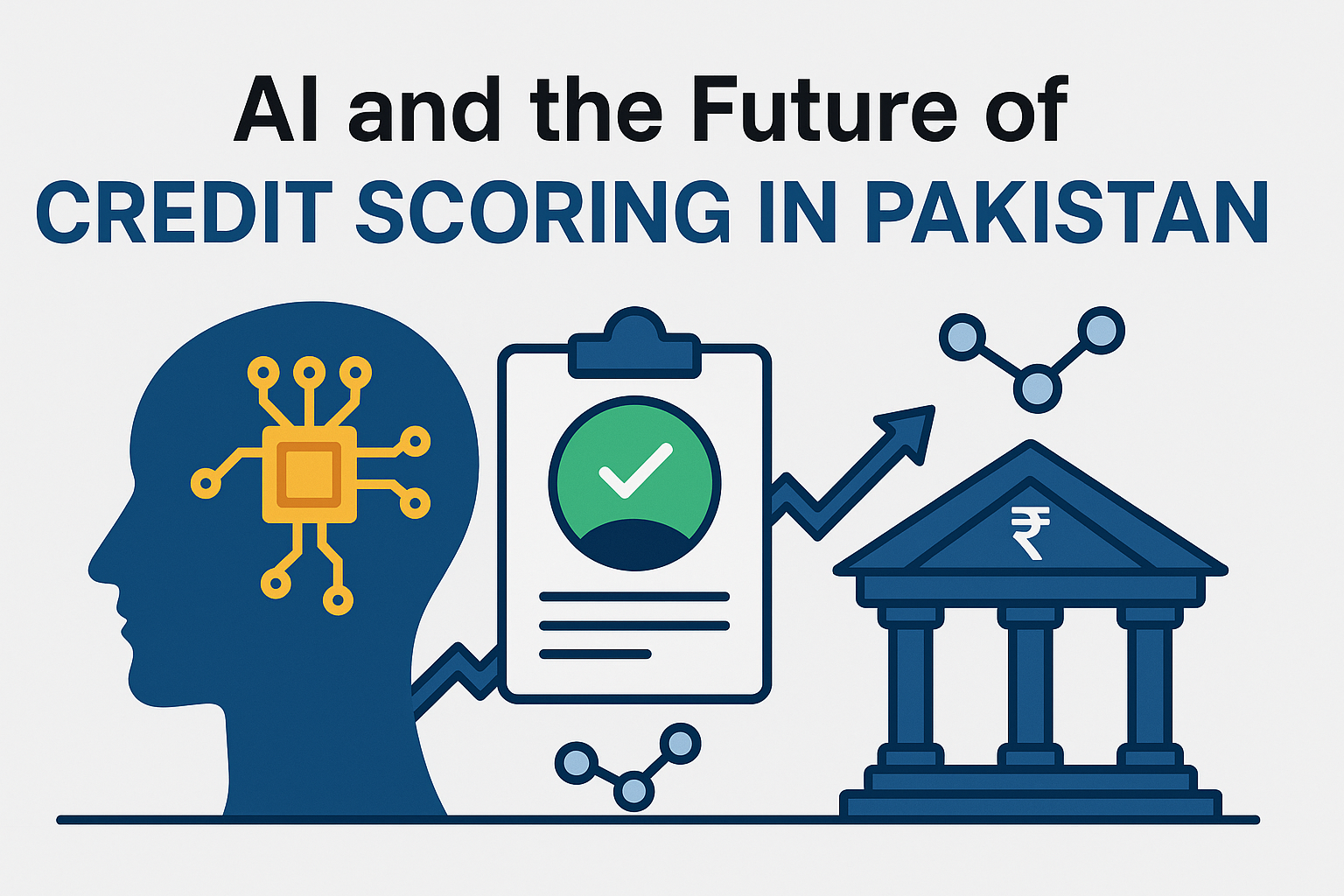JUNAID RIAZ

AI and the Future of Credit Scoring in Pakistan
Lending decisions have always relied heavily on credit scoring. In countries like Pakistan, however, these decisions still depend almost entirely on traditional credit bureau data. The result is a banking system that leaves out a large segment of potential customers—especially young people, freelancers, and small businesses.
Globally, the picture is very different. Banks and fintech firms are embracing Artificial Intelligence (AI) and machine learning to strengthen risk management and expand financial inclusion. In China, Ant Financial deploys AI-driven models that analyze thousands of data points, enabling lending even to individuals with no formal credit history. In Kenya, fintech companies such as Tala and Branch use mobile phone data to provide microloans to those previously locked out of the banking system. These examples illustrate how AI has the power to widen access to credit without relying solely on traditional credit bureaus.
Why AI Matters
AI-driven lending platforms go far beyond repayment history. They can process more than a thousand variables—ranging from education and employment history to income patterns, digital activity, and spending behavior. By examining such diverse data points, banks can build a far clearer picture of a borrower’s risk profile. The results are transformative:
- Higher approval rates
- Greater financial inclusion, particularly for the youth
- Lower default rates
In contrast, Pakistani banks continue to depend on outdated mechanisms. Manual processes make lending not only slow and costly but also unnecessarily restrictive.
The Opportunity for Pakistan
AI-powered credit scoring provides a practical path forward. Pakistani banks already sit on vast amounts of untapped customer data, including:
- Utility bill payments
- Spending behavior
- Cash flow patterns
- Payroll history
Banks in the United States and Europe are already seeing the benefits of integrating AI into their credit assessment systems, enjoying faster approvals and fewer defaults. By adopting similar tools, Pakistani banks can gain a competitive edge and position themselves as digital leaders in the region’s financial sector.
Crucially, the transition does not require a dramatic leap. It can begin in a measured, manageable way:
- Launch AI models for low-risk products first
- Partner with fintech firms and technology providers
- Work closely with the State Bank of Pakistan to ensure transparency and compliance with data protection rules
- Train employees to understand how AI models differ from traditional credit scoring
A Call to Action
Pakistan’s banking sector is gradually moving from manual operations to digital platforms. Global experience makes one thing clear: AI is not just another technological upgrade—it is a key to unlocking both growth and inclusion. Across Asia and Africa, AI-powered lending has already brought millions of unbanked individuals into the financial system. Pakistan now has the same opportunity—if its banks act decisively.
Conclusion
The question is not if AI will transform credit scoring, but when. The institutions that take the first step today will be the ones leading tomorrow. Embracing AI is no longer just about efficiency; it is about shaping the future of inclusive and competitive banking in Pakistan.
The Author is a banker with interest in emerging technologies
